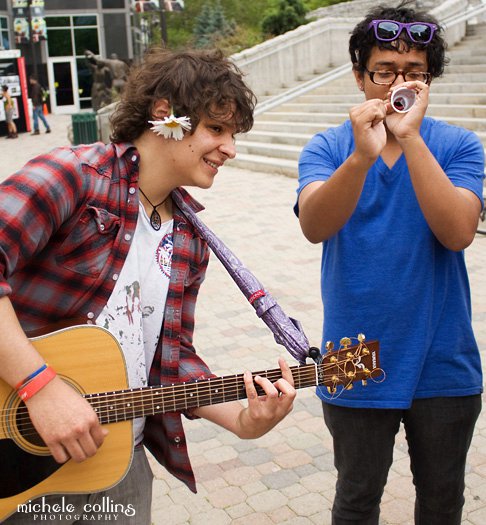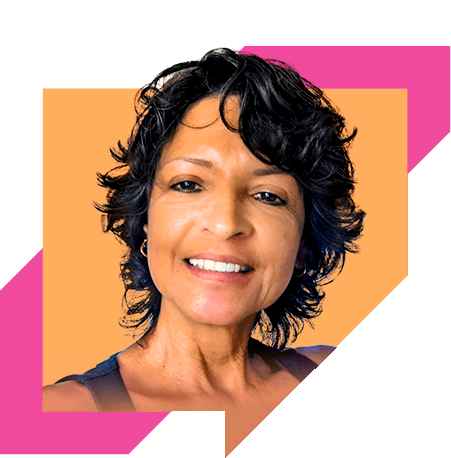Learning a new language can indeed be a challenging but rewarding journey. When you first start you might feel like it’s too hard to make progress, but it’s completely doable.
My English journey actually started at the age of 18 when I graduated from high school and started my BA in Modern Languages while living in Colombia. It was not an easy journey at first due to the scarcity of resources at the time, such as the lack of technology, no Internet access, traveling limitations, finances, the teaching approaches, the lack of experience and no international connections, among others.
During the course of my bachelors I received instruction in culture, literature, phonetics and phonology, syntax and semantics and many other subjects that pertained to teaching the language. So I was formally trained to teach languages, mainly English and Spanish. There was a lot of knowledge to apply in my professional life in Colombia.
As a language teacher in formation I was driven by my passion and ultimate goal of becoming fluent in English, being able to develop an effective language teaching/learning approach that could give me the tools I would need. As time went by, I found out that proficiency in a foreign language is very possible.
I envisioned myself interacting with others the way I did it in my own language, so I decided to set a plan. The first step was to start my exposure to the most appealing and handiest resources available: school, audios, videos, music, friends and even dancing. I found those strategies to be really effective for language acquisition. In this process I learned to imitate, identify and repeat sounds, words and phrases that were as close as possible to the source language.
I learned to develop my own learning strategies and started transferring newly acquired knowledge over to my family, friends and acquaintances (music was the key).
Back in the 70s, Colombia was pretty much isolated from the rest of the world. There were a few American TV shows dubbed into Spanish, also most of the radio programs were in Spanish. Nevertheless, American music started to take prominence, and that was the key to boost my stamina and motivation to improve my English pronunciation and willingness to increase my vocabulary. Most of all, understanding the message brought within the lyrics.
After graduating with my bachelors in language teaching in 1982, I became an official English teacher. I worked for several schools in all academic levels from K-12 to tertiary education which is the longest experience I’ve had together with corporate employees training in both English and Spanish. In 1992, I completed my specialization in English/Spanish translation, but I was still missing the key to bring a more authentic role language modeling to my pupils.
I needed to learn about the culture, not just through books and literature, but with experience in person to feel what it was like to survive in an English speaking country.
I finally decided to travel to the US to pursue my TESOL (Teaching English to Speakers of Other Languages) certificate. It was a short but long enough exposure to test my communication skills and to get a sense of the culture whose language I wanted to learn so I could eventually provide better and more standardized quality of teaching.
The experience of being immersed in an authentic scenario where I had to literally survive by using my communication skills had no parallel. Experiencing what it was like to interact at the bus stop, at home with my roommate, at restaurants, the supermarket and in the classroom class did not compare to any other learning experience I’d had before.
At college, almost no one else spoke Spanish in my classes, only English. I struggled to communicate, even after so many years of education and practice. But after completing my studies in California, I became a different person. I returned to Colombia to my students with heightened awareness of linguistic and cultural differences and pronunciation skills. It was fascinating to experience in flesh and blood, what it is like to survive in a foreign culture.
This is something I’ve always shared with others through my teaching career: “I know how it feels to be sitting in a classroom, almost not understanding a word the teacher is saying, the frustration that comes from not being able to pronounce words accurately, or conveying a message, expressing your needs, or even being ashamed or intimidated by unintentional faster learners in the classroom. Because I know what it feels like, now as a language instructor, I know how to address that vulnerability.”
I’ve learned a powerful lesson in my language learning career: You will enjoy learning a language, and I have learned that IT IS possible if you truly embrace and accept different cultural perspectives pertaining to that language you want to learn.
Nelson Mandela once said:
“If you talk to a man in a language he understands, that goes to his head. If you talk to him in his language, that goes to his heart.” I truly believe it!

Kickstarting Your Motivation to Learn Another Language
Taking the first step to start your foreign language learning may just require being a little curious. Maybe just by watching a video, listening to some music, traveling, or meeting a native speaker. Then, you’ll find out if it was just a sparkle for curiosity or your motivation is boosted by willing to learn more.



